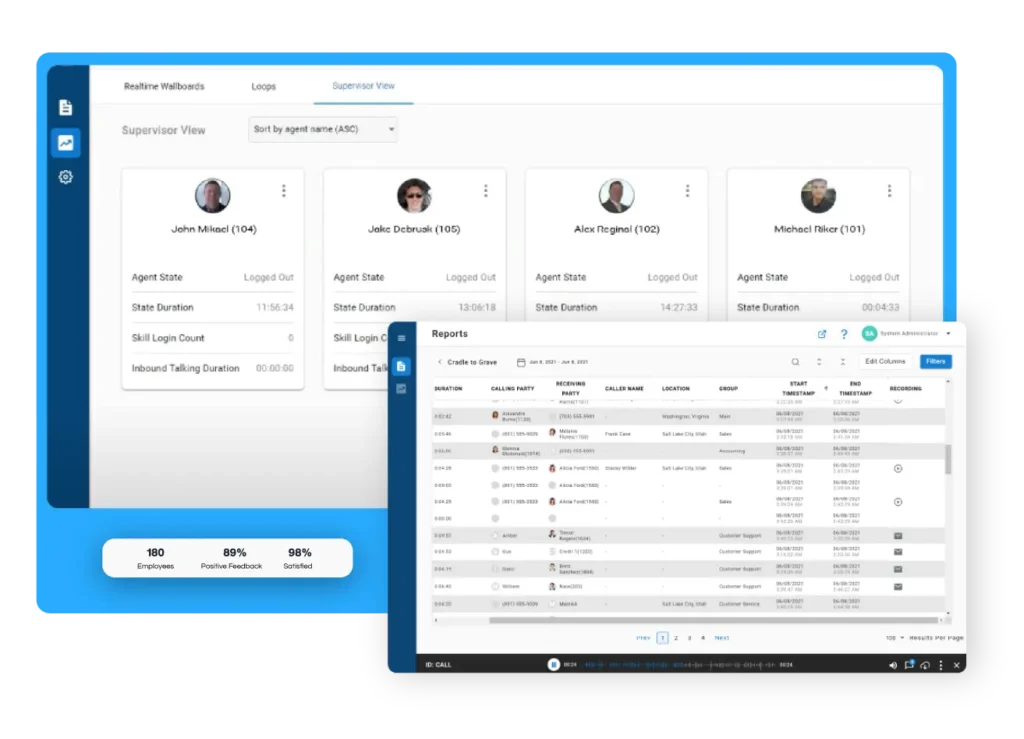In today’s digital world, contact centers sit at the intersection of customer experience and the exchange of sensitive data. With customer trust on the line and regulators watching closely, maintaining AI data privacy compliance isn’t just a legal obligation; it’s a business imperative. Regulations like GDPR and CCPA have reshaped how organizations handle personal data, and AI is emerging as both a solution and a challenge. In this article, we’ll explore how AI not only helps contact centers meet data privacy requirements but also improves service delivery, reduces human error, and empowers QA teams to uphold the highest standards.
Understanding AI Data Privacy Compliance
Contact centers today rely heavily on AI technologies, from chatbots to call transcription tools, to streamline operations and improve customer interactions. But using AI to handle personal information introduces significant compliance responsibilities. AI data privacy compliance ensures that these technologies respect the rights of individuals and operate within legal frameworks designed to protect data integrity and privacy.
Key Compliance Standards: GDPR and CCPA
Two of the most influential data privacy regulations are the EU’s General Data Protection Regulation (GDPR) and the California Consumer Privacy Act (CCPA). Both demand strict protocols for how personal data is collected, stored, and processed. For contact centers, this means:
- Providing transparency about how data is used
- Allowing customers to access, delete, or opt out of data collection
- Ensuring secure data transfers and storage practices
AI systems must be designed and trained with these principles in mind to avoid violations and maintain customer trust.
The Role of AI in Compliance Management
AI simplifies compliance by automating tasks that are tedious and error-prone when done manually. AI tools can:
- Track and log consent in real time
- Monitor data access and flag anomalies.
- Generate compliance reports on demand.
This automation ensures that contact centers can consistently demonstrate compliance, even as customer volumes and regulations evolve.
Enhancing Contact Center Compliance and Service with AI
Compliance and customer experience aren’t mutually exclusive. In fact, AI makes it possible to elevate both. Intelligent systems can detect issues, personalize interactions, and guide agents in real time, helping contact centers meet both service and security expectations.
Automation of Compliance Monitoring
AI tools are now capable of scanning thousands of conversations daily to detect potential breaches or risky behavior. They flag phrases that could indicate policy violations, notify supervisors, and even offer in-the-moment coaching to agents. This proactive approach drastically reduces compliance incidents and accelerates resolution times.
Speech Analytics and Real-Time Feedback
AI-powered speech analytics converts spoken language into structured, searchable data. These systems assess tone, keywords, and sentiment in real-time, providing immediate feedback to agents. This helps maintain professionalism, support compliance, and boost overall customer satisfaction.
Secure Transactions and Data Redaction
To comply with standards like PCI DSS, AI can automatically redact sensitive data such as credit card numbers or health identifiers during live interactions. This ensures customer transactions remain secure and reduces the risk of data leakage, all without slowing down service delivery.
Meeting Legal and Security Requirements
As regulatory landscapes expand, AI continues to evolve in ways that support even the strictest legal and data security requirements. Let’s explore how AI helps organizations stay compliant with various industry-specific regulations.
Importance of Prior Express Written Consent
The FCC requires contact centers to obtain prior express written consent before contacting consumers, particularly in sales scenarios. AI solutions automate consent tracking and recordkeeping, ensuring that outreach stays within legal bounds and shielding organizations from hefty fines.
Gramm-Leach-Bliley Act and Financial Data Security
In the financial services industry, the Gramm-Leach-Bliley Act (GLBA) mandates strict data protection practices. AI helps automate the management of opt-out workflows and enforces safeguards around customer financial data, assisting institutions to maintain confidentiality and trust.
HIPAA Compliance and Protecting Health Information
Healthcare-related contact centers must navigate the complexities of HIPAA regulations. AI supports these efforts by encrypting Protected Health Information (PHI), tracking data access, and enabling secure communications, ensuring that compliance doesn’t come at the expense of service quality.
The Role of QA Teams in Supporting AI Compliance
Quality Assurance (QA) teams play a crucial role in monitoring performance, upholding service standards, and ensuring compliance with regulations. With AI in the mix, their work becomes more strategic and less manual.
Reducing Compliance Burden on QA Teams
Instead of manually reviewing call after call, QA teams can rely on AI to automatically flag issues, surface patterns, and highlight compliance risks. This reduces repetitive workload and gives QA teams time to focus on coaching agents and optimizing workflows.
Enhancing Quality Assurance through AI
AI enables consistent and objective call evaluations at scale. It helps identify trends, provides instant feedback loops, and uncovers risks before they escalate. This not only strengthens compliance but also contributes to continuous improvement in service quality.
Conclusion
AI in contact centers isn’t just about enforcing compliance. It’s about enabling better experiences for both customers and employees. By automating compliance tasks, securing sensitive information, and supporting frontline teams, AI becomes a powerful ally in meeting the growing demands of privacy regulations. As contact centers strive to be both service-focused and compliant, AI data privacy compliance is the bridge that makes it possible.
The future of contact centers is one where customer trust, service excellence, and regulatory integrity all move forward together.



